 Great rock 'n' roll bands can be deceptively hard to find. There's too often an empty gap between the dime-a-dozen bands playing to alt-rock radio, punk/hardcore traditionalism, and the toothless, blog-hyped indie scene. Thankfully, The Men exist outside all of those spheres as one of the finest rock bands around.
Great rock 'n' roll bands can be deceptively hard to find. There's too often an empty gap between the dime-a-dozen bands playing to alt-rock radio, punk/hardcore traditionalism, and the toothless, blog-hyped indie scene. Thankfully, The Men exist outside all of those spheres as one of the finest rock bands around.
- Administrator
- Albums and Singles
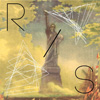 Peter Rehberg and Marcus Schmickler make a perplexing and contradictory duo. Take their computers away from them and their differences, both in theory and in practice, become clear. Perhaps because of these differences, Peter and Marcus have produced just two records together: 2007’s One (Snow Mud Rain), released by Erstwhile, and USA, a live recording released by Pan in 2011. Composed entirely of high intensity, tuneless noise, USA offers no explanation for its rationale or structure, or whether it has either to begin with, which leaves only the quality of the sounds to speak for themselves.
Peter Rehberg and Marcus Schmickler make a perplexing and contradictory duo. Take their computers away from them and their differences, both in theory and in practice, become clear. Perhaps because of these differences, Peter and Marcus have produced just two records together: 2007’s One (Snow Mud Rain), released by Erstwhile, and USA, a live recording released by Pan in 2011. Composed entirely of high intensity, tuneless noise, USA offers no explanation for its rationale or structure, or whether it has either to begin with, which leaves only the quality of the sounds to speak for themselves.
In interviews, Peter Rehberg describes what he does in mostly non-musical terms. Rather than make music, Peter claims he recycles audio. It’s not an easy distinction, but it helps to explain why his music sounds the way it does. His performances are defined by the technology that he chooses to use, which is frequently outdated, and the forms of his pieces are shaped by the way he manipulates samples and chops up sound. Marcus Schmickler, on the other hand, works from concepts, and in interviews he uses more conventionally musical terms, like pitch and counterpoint, to describe his work. As able with classical instruments as he is with synthesis and computer noise, Schmickler’s solo work almost always bears evidence of his musical thinking, whether he’s composing or improvising. But, pinning him down is notoriously difficult, and his collaborative projects are wildly varied. Were it not for his name on the cover, there would be no way I could connect him to albums as diverse as Variety, with John Tilbury, and Rabbit Run, with Keith Rowe and Thomas Lehn.
USA continues that confounding streak. Recorded in 2009 in New York City and Chicago, each of the three featured pieces is a barely controlled eruption of improvised digital tumult. The liner notes refer to the pieces as "real time extreme music improvisations," but they're more like walls of noise. Skip to a random part of any of the performances and there will be crunchy computer audio being torn apart and reconfigured as asymmetric rhythms, squealing synthetic fragments, and waves of unstable tonality. Structure, form, pitch, duration, and everything else are so smeared that they’re made secondary to the color and quality of the noises used. R/S layer those noises into textured patterns, if they can be called that, until the textures become so intense they subsume everything else. The effect is overwhelming at first, but with time the ears adjust and the music snaps into focus. The textures don’t become less abrasive, necessarily, but they do become easier to discern.
Listening to USA the first dozen times, I was convinced that Peter Rehberg had taken the lead on his American tour with Marcus Schmickler and effectively silenced Marcus in the process, but now I’m not sure. In places, I think I hear Marcus patiently matching Peter’s barrage of garbage audio with long synthetic tones and chunks of digital chatter. Trying to match Rehberg’s onslaught would have been pointless, anyway. Instead, Marcus finds a way to compliment it.
samples:
 
Read More
- Administrator
- Albums and Singles
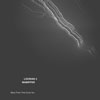 On a stop at Steve Albini's famed Electrical Audio studios during a recent joint tour, the Washington state husband and wife duo recorded this collaboration with Chicago’s noise/metal trio, later mixed by Randall Dunn. The result is a dark, yet captivating set of tracks that brings in bits of drone, black metal, post-rock, and gentle piano passages, bearing the mark of both but sounding entirely unique.
On a stop at Steve Albini's famed Electrical Audio studios during a recent joint tour, the Washington state husband and wife duo recorded this collaboration with Chicago’s noise/metal trio, later mixed by Randall Dunn. The result is a dark, yet captivating set of tracks that brings in bits of drone, black metal, post-rock, and gentle piano passages, bearing the mark of both but sounding entirely unique.
Sige/Utech/Land of Decay/Profound Lore
Locrian, the trio of Terence Hannum (synths/vocals), Andre Foisy (guitar) and Steven Hess (drums) are joined here by Mamiffer, the duo of Faith Coloccia and Isis/Greymachine’s Aaron Turner.With both projects working in different, but similarly metal-influenced experimental direction, the collaboration makes perfect sense.
Bless Them That Curse You is bookended by two dramatic, genre spanning pieces that open and go out with a bang."In Fulminic Blaze" opens with bellowing, Tibetan monk vocal drones and squealing abstract noises to harrowing effect, before being uprooted by a duet of acoustic guitar and piano, to which Steven Hess' measured, understated drumming slides in.The noisier material from early on reappears and melds in perfectly, further fleshing out the already complex sound.Towards the end it’s switched over to electric guitar to excellent effect.
The closing piece, the near-20 minute suite of "Metis/Amaranthine/The Emperor" leads off with subtle piano and gentle vocals courtesy of Coloccia, eventually with added guitar and textural keyboard layers.The mood goes from melancholy to bleak and sinister about a third of the way through, with the piano and vocals eventually overtaken by layers of noise and distant, unidentifiable howling.
The darkness hinted at erupts violently when Foisy's rapid, black metal tinged guitar slides in over militaristic drums that seem to herald armies marching toward an imminent apocalypse.Dissolving into pure noise, eventually the drums transform into a more traditional rock structure, with Turner taking over vocals in a violent, guttural outburst, before wrapping the album up with quiet feedback.
Between theses monolithic slabs lies a series of more restrained and moody ambient pieces.The title track goes more of a film score route, with complex layers of drifting ambience and droning synth, pushing in a more restrained, but still drama-laden direction.Both "Corpus Luteum" and "Lechatelierite" bear the Mamiffer sound more so than the others, being primarily lead by Coloccia's piano and accompanied by noisy, dissonant textures.Conversely, "Second Burial" feels more Locrian-esque, with abstract fuzz and digital treatments atop slow, lurching drones.
These two artists were a natural fit, given that they both accompany that gray area between drone, metal and post-rock, and both also work extremely well with sparser, understated sounds.While the opening and closing moments here are bombastic and pummeling at times, between the two lie a lot of hazy, ambiguous spaces that reveal more with each listen.
In an unconventional move in this day and age, Bless Them That Curse You is released on the three major formats, LP, CD and cassette.While each feature the same music, the presentation differs, from the gatefold deluxe double LP to the deluxe digipakCD to the oversized boxed tape, complete with stickers and hand-sewn booklet.Regardless of preferred format, any of them will capture the scope and drama of this work better than any downloadable format, so everyone's covered.
samples:
 
Read More
- Administrator
- Albums and Singles
 Way back in 1996, the duo of Thomas Köner and Andy Mellwig released this singles collection on the revered Chain Reaction label.  Over the ensuing years, it has justifiably been hailed as an inarguable dub techno classic, but it has remained maddeningly out-of-print for quite some time.  Now it is thankfully back again and it still sounds pretty amazing, which is a rather astonishing feat for cutting edge techno from almost two decades ago.  I'm a little disappointed that Type did not try to replicate (or outdo) the original, famously CD-damaging metal packaging though.
Way back in 1996, the duo of Thomas Köner and Andy Mellwig released this singles collection on the revered Chain Reaction label.  Over the ensuing years, it has justifiably been hailed as an inarguable dub techno classic, but it has remained maddeningly out-of-print for quite some time.  Now it is thankfully back again and it still sounds pretty amazing, which is a rather astonishing feat for cutting edge techno from almost two decades ago.  I'm a little disappointed that Type did not try to replicate (or outdo) the original, famously CD-damaging metal packaging though.
This is a fascinating album to try to deconstruct, as it often seems like a very abstract and boldly experimental effort that just happens to occasionally feature thumping four-on-the-floor beats.  I'm a bit conflicted on house beats in this instance, as I generally hate them with a fiery passion.  I definitely found myself annoyed by their blunt prominence in "Port of Call," but they are employed with tactful and ingenious restraint in most other instances.  In fact, the insistent pulsing is actually necessary to make music this uncompromisingly unmusical work.  This is most apparent in "Biokinetics 2," which closely resembles Köner's bleakly alienating and cavernous solo ambient work, but works a bit better due to its deep heart-like throb.  The genius of Biokinetics lies in how the beats sound, which is almost always distant and submerged.  In fact, the whole album sounds like it was recorded in a deep, dark trench in the ocean.  Or perhaps in a bubbling cauldron of molasses.  Those are both heartfelt compliments in this case, of course.
My clear favorite piece on the album is the tensely throbbing "Nautical Dub," which unleashes a very deep and insistently repeating bass line beneath a masterfully executed and shifting soundscape that sounds like a heavily processed rain storm mingled with stabs of hollow, ruined-sounding plonks.  I could listen to it forever.  There are a number of other pieces on Biokinetics that are more striking though, as Thomas and Andy took their music to some pretty outré places.
The most weird and dance-unfriendly of those pieces is probably "Biokinetics 1," which warps a synth bass line into a sick slow-motion burbling, dispenses with any kind of beat, and augments it only with a something that resembles a clanking, forlorn, pitch-shifted xylophone.  Then, later on the album, the duo spend two entire songs toying with a prominent rhythmic loop that constantly drifts in and out of phase with the very straightforward underlying beat: "Port of Nuba" sounds like a spirited ping-pong match unfolding over an otherwise bland, unremarkable bit of house music, then "Nautical Nuba" sounds like the exact same thing, but somehow underwater.
It is impossible to be unimpressed by the vision and singularity of Biokinetics, but it is a very difficult album to warm to or love in a non-cerebral way.  Its appeal lies primarily in how deftly and uniquely it uses minimalist repetition and studio technique to weave something wonderful out of the sparsest musical content.  "Nautical Dub" is brilliant, but none of the other pieces are quite on that level.  Some of them are pretty unusual, inventive, or ingeniously produced, but that is not quite the same thing as being great.
Also, there is an enormous amount of repetition here.  Within songs, I understand that that is largely the point: Köner and Mellwig were using obsessive repetition in service of achieving a cumulative slow-burning intensity.  Unfortunately, such intensity was not always the end result and some pieces drag a bit.  More significantly, however, Biokinetics is largely composed of song pairings: for example, "Port Gentil" and "Nautical Zone" are essentially two versions of the exact same piece of music (and make up 25 minutes of the album).  It is certainly neat and enlightening to hear how the duo transform their base materials, but it also means that Biokinetics only contains five or six real songs.  That said, it was never intended as a coherent album, so it is a bit unfair to find fault with that (even though that is how I experienced it)–the important thing is that Biokinetics compiles some truly innovative and inspired work that turned out to be far more timeless than anyone could have anticipated.
Samples:
 
Read More
- Administrator
- Albums and Singles
 Great rock 'n' roll bands can be deceptively hard to find. There's too often an empty gap between the dime-a-dozen bands playing to alt-rock radio, punk/hardcore traditionalism, and the toothless, blog-hyped indie scene. Thankfully, The Men exist outside all of those spheres as one of the finest rock bands around.
Great rock 'n' roll bands can be deceptively hard to find. There's too often an empty gap between the dime-a-dozen bands playing to alt-rock radio, punk/hardcore traditionalism, and the toothless, blog-hyped indie scene. Thankfully, The Men exist outside all of those spheres as one of the finest rock bands around.
When I think about the music I anticipate, enjoy, and latch onto in terms of categorization, good ol' fashioned rock 'n' roll often gets a raw deal. In 2012 alone, the past few months, I've spent a good deal of time spinning Eyvind Kang's modern classical suite, The Narrow Garden; Oren Ambarchi's abstract monument, Audience of One; Lindstrøm's flawed but enjoyable (and danceable) Six Cups of Rebel; and Windy and Carl's immersive We Will Always Be. Bands I enjoy that perform with "rock" instruments are usually after something more sophisticated than adrenaline, raw energy, and righteous emotion, like Earth's cello-augmented drone, Alcest's shoegaze-meets-black-metal wall of bliss, or Bardo Pond's long-form psych improvisations. It's a rarity when I come across a traditional rock band that is more than the sum of its influences, able to hold my attention for longer than a catchy single or two. Right now, The Men are that band.
Last year's Leave Home is essentially, for myself and many listeners, The Men's first full-length album (2010's vinyl-only Immaculada was slept on). It ended up perhaps the year's best rock album—a noisy ball of energy, as much guitar scrape and scrawl as actual songcraft that succeeded primarily on account of capturing their rapturous live approach on record. Open Your Heart is their second album for Brookyln's finely curated Sacred Bones label. It is far more accessible than their past work, though not on a broadly commercial level (like, say, Madonna's 1986 number-one single of the same name). As a step forward, with greater emphasis on songwriting, melody, and sheer genre-hopping variety, it succeeds admirably.
Open Your Heart stands as an enjoyable record for a few reasons. First, its songwriting—with duties spread between all four members—has tightened up considerably. The title track is a fine example; to my ears, it's their catchiest and finest four minutes to date. The band's free-form noise and hardcore influences have been dialed back a fair amount, and the sequencing augments their transition into genre-hopping experiments. "Turn It Around" and "Animal" kick off the album with two barnstorming punk blasts before The Men dip their guitars into everything from instrumental, acid-fried country ("Country Song"—who'd have guessed it?) to Krautrock-influenced grooves ("Oscillation") to acoustic rock with steel-guitar accents ("Candy," which is just begging for radio play in between Neil Young and the Rolling Stones' "Angie").
If anything, Open Your Heart reminds me of Hüsker Dü's late '80s mindset, in which the band hopped between any and every genre in their record collection with disregard for punk traditionalism. The same no-rulebook approach guides The Men today, as they sequence the above-cited "Candy" into "Cube," a two-minute blast through fast-tempo drumming and shouting, then "Presence," which switches into Spacemen 3 tribute mode as the album's lengthiest song. By the time "Ex-Dreams" punctuates the record with three chords and an SST-worthy vocal melody, I'm spent, ready to take a break—just long enough to catch my breath before the next spin.
Samples:
Read More
- Administrator
- Albums and Singles
Ship Chop is a celebratory cut-up of far-flung musics. Edited, collaged and re-arranged by Daniel Padden from original vinyl sources to create impossible collaborations between musical ghosts.
It is both reverential and sacrilegious, giving the music its full praise whilst also subjecting it to playful subversion. Some of the editing is obvious and transparent, but some of it much less so, where sounds from different recordings and continents overlap into an unlikely whole.
Read More
- Administrator
- Albums and Singles

Read More
- Administrator
- Albums and Singles
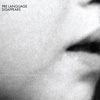 Last year, I was pleasantly surprised by how much better Guider was than its predecessor.  Now Disappears has surprised me again, greatly toning down their signature Neu!-worship in favor of something that sounds like a hell of a lot like GVSB-worship (or perhaps merely a deep fascination with Mark E. Smith).  Fortunately, I thought Girls Against Boys were pretty awesome in their prime and The Fall aren't so bad either.  More importantly, this quizzical shift in direction coincides with a fairly massive leap forward in the band's songwriting, making this the punchiest, hookiest, leanest, and most immediately gratifying album that the band has made yet.
Last year, I was pleasantly surprised by how much better Guider was than its predecessor.  Now Disappears has surprised me again, greatly toning down their signature Neu!-worship in favor of something that sounds like a hell of a lot like GVSB-worship (or perhaps merely a deep fascination with Mark E. Smith).  Fortunately, I thought Girls Against Boys were pretty awesome in their prime and The Fall aren't so bad either.  More importantly, this quizzical shift in direction coincides with a fairly massive leap forward in the band's songwriting, making this the punchiest, hookiest, leanest, and most immediately gratifying album that the band has made yet.
While comparisons to other bands are pretty unavoidable when discussing Pre Language, it isn't nearly as derivative of an album as it seems at first listen.  In fact, only Brian Case's laconic and syllabically enhanced vocals stand out as especially indebted to Smith and GVSB (kind of a shouted mumble in which every last word ends with a drawled -ah or -uh).  The issue is simply that Case's vocals tend to be the focal point.  Still, it is hard to deny the appeal of such cool disaffection, even if Case is not darkly sexual or cantankerously deranged as his predecessors.  He probably should work on concealing his influences a little better, but at least he has pretty unerring taste in choosing them.
Vocals aside, Disappears has become much better and more distinctive at what they do in all other respects.  Part of that increased focus and emphasis on structure is probably due to the addition of Sonic Youth's Steve Shelley as the band's full-time drummer, as previous drummer Graeme Gibson always seemed like one of the band's driving creative forces.  However, the drumming itself is not wildly different–both drummers are clearly in love with motorik beats (Shelley having recently toured as a member of Michael Rother's Hallogallo).  The key difference seems to be that the groove is no longer the primary objective.  Rather than locking into a cool beat and vamping on it until the song is done, Pre Language finds the band stripping away much of the bloat and improvisation in place of tight riffing and coherent songs.  Rhythmic repetition is certainly still a central component of the Disappears' aesthetic, but it has become a tool rather than an end.  Also, these songs are a lot less busy than their predecessors and the added space allows for punchier and more dynamic riffing and some welcome increased emphasis on bass lines.
All of that ultimately means that everything great about Disappears (propulsive beats, cool minimal riffs, a certain restrained bad-assness) is still there: it's just sharper and better presented than I was expecting.  Some fans may be a bit disappointed that there are no lengthy, barreling epics of repetition in the vein of Guider's "Revisiting," but it seems unlikely: there are just too many things to like here (the Fugazi-esque stabbing riff of "Joa," the rumbling tom beat of "Hibernation Sickness," the swagger and hookiness of the title piece, etc.).  I still maintain that Disappears are a band best enjoyed in single-song doses rather than an entire album, but Pre Language boasts a very high proportion of short, catchy, hard-hitting songs.  My sole other caveat is that I wish this band would get a bit wild and unhinged more often: while the guitars explode a bit at the end of "Hibernation Sickness," they stay a bit too polite, processed, and deep in the mix to be truly biting.  Those are pretty minor quibbles though, as this is pretty solid and enjoyable effort from start to finish (and an impressive evolutionary leap too).
Samples:
 
Read More
- Carl Thien
- Albums and Singles
 The Unutterable comes as a pleasant surprise, that is; two great new Fall albums in a row. 15 new songs. One of them ("Dr. Bucks Letter") is my fave Fall song right now. "Octo Realm/Ketamine Sun" is really great too, as is "Cyber Insekt". The songs on this disc combine 25 years of Mark E. Smiths experience in a very individual way.Part of Ketamine sun sounds like a cassette poetry reading, while two minutes later the same song has great production and thoroughly modern instrumentation. Mark e. smith has never tried to keep a steady band. The only things he keeps is a steady vision, which he uses players to flesh out. There was such a long period that I considered The Fall to be way past their glory days that I am especially amazed at how great this (and the last) LP sound. In a way Mark E. Smith is like Billy Childish. Their musical visions are in no way the same, but both have remained very much in touch though out their 25 year careers. The title track of this CD is a one minute spoken piece that made me think of the comparison. The song after that track ("Pumpkin Soup and Mashed Potatoes") is pretty different too. It has warped brass and flute in it that remind me of the Boston 'orchestra' Jumbo which provided an outlet for many Boston musicians to play instrumentals they played in High School bands instead of the usual Rn'R instruments they play each night. "Hands Up Billy" is strange too because it has someone singing lead vocal instead of Mark E. Smith. In fact out of the 8 people in the Fall, 3 are created solely with vocals: Mark E. Smith, Steve Evets, and Kazuko Hohki. "Devolute" makes great effect of the multi-vocalists and is on of my 5 fave tracks on the disc as well, along with the aforementioned "Dr. Bucks Letter", "Octo Realm/Ketamine Sun", "Cyber Insekt", & "Serum."
The Unutterable comes as a pleasant surprise, that is; two great new Fall albums in a row. 15 new songs. One of them ("Dr. Bucks Letter") is my fave Fall song right now. "Octo Realm/Ketamine Sun" is really great too, as is "Cyber Insekt". The songs on this disc combine 25 years of Mark E. Smiths experience in a very individual way.Part of Ketamine sun sounds like a cassette poetry reading, while two minutes later the same song has great production and thoroughly modern instrumentation. Mark e. smith has never tried to keep a steady band. The only things he keeps is a steady vision, which he uses players to flesh out. There was such a long period that I considered The Fall to be way past their glory days that I am especially amazed at how great this (and the last) LP sound. In a way Mark E. Smith is like Billy Childish. Their musical visions are in no way the same, but both have remained very much in touch though out their 25 year careers. The title track of this CD is a one minute spoken piece that made me think of the comparison. The song after that track ("Pumpkin Soup and Mashed Potatoes") is pretty different too. It has warped brass and flute in it that remind me of the Boston 'orchestra' Jumbo which provided an outlet for many Boston musicians to play instrumentals they played in High School bands instead of the usual Rn'R instruments they play each night. "Hands Up Billy" is strange too because it has someone singing lead vocal instead of Mark E. Smith. In fact out of the 8 people in the Fall, 3 are created solely with vocals: Mark E. Smith, Steve Evets, and Kazuko Hohki. "Devolute" makes great effect of the multi-vocalists and is on of my 5 fave tracks on the disc as well, along with the aforementioned "Dr. Bucks Letter", "Octo Realm/Ketamine Sun", "Cyber Insekt", & "Serum."
Read More
- Administrator
- Albums and Singles
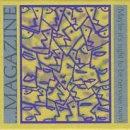 Howard Devoto assembled Magazine within months of departing the Buzzcocksin 1977. More artsy and dynamic than the punk he abandoned, Magazine's 5piece line-up (the only constants being Devoto and a young Barry Adamsonon bass) augmented vocals/guitar/bass with liberal use of piano, keyboardsand saxophone and drew influence from punk, post-punk, funk, new wave androck, as well as the literature Devoto devoured. In less than 4 yearsthey released 5 albums and numerous singles. "Maybe It's Right.." boxesup previously unreleased goodies and the highlights of their influentiallegacy on 3 fifteen track cds. Disc 1 covers the Real Life/SecondhandDaylight era, including "Shot By Both Sides", "I Love You You Big Dummy","My Tulpa", "Definitive Gaze", "The Light Pours Out of Me" and theinfectiously catchy "Rhythm of Cruelty". Disc 2 is The Correct Use ofSoap/Magic, Murder and the Weather era, including "A Song From Under theFloorboards", "Thank You", "Because You're Frightened", "Model Worker" and"Come Alive". Both of these discs feature alternative mixes and recordings,live songs and single A and B sides. Disc 3 is the real treat though with4 previously unreleased, live in the studio Peel sessions dating between'78 and '80. These sessions, along with the live songs from discs 1 and 2,show just how diverse, tight, edgy, explosive and cool Magazine could bewith solid versions of the big 'hits'. There's a lot of really vital stuffhere some 20 years on down the road. Other than the simple slip cases forthe discs, the ugly turquoise and yellow fold-up box contains a 28 pageinsert full of archival photos but, disappointingly, no liner notes otherthan track credits and no mention of re-mastering. Fortunately everythingsounds great and the music more than makes up for it.
Howard Devoto assembled Magazine within months of departing the Buzzcocksin 1977. More artsy and dynamic than the punk he abandoned, Magazine's 5piece line-up (the only constants being Devoto and a young Barry Adamsonon bass) augmented vocals/guitar/bass with liberal use of piano, keyboardsand saxophone and drew influence from punk, post-punk, funk, new wave androck, as well as the literature Devoto devoured. In less than 4 yearsthey released 5 albums and numerous singles. "Maybe It's Right.." boxesup previously unreleased goodies and the highlights of their influentiallegacy on 3 fifteen track cds. Disc 1 covers the Real Life/SecondhandDaylight era, including "Shot By Both Sides", "I Love You You Big Dummy","My Tulpa", "Definitive Gaze", "The Light Pours Out of Me" and theinfectiously catchy "Rhythm of Cruelty". Disc 2 is The Correct Use ofSoap/Magic, Murder and the Weather era, including "A Song From Under theFloorboards", "Thank You", "Because You're Frightened", "Model Worker" and"Come Alive". Both of these discs feature alternative mixes and recordings,live songs and single A and B sides. Disc 3 is the real treat though with4 previously unreleased, live in the studio Peel sessions dating between'78 and '80. These sessions, along with the live songs from discs 1 and 2,show just how diverse, tight, edgy, explosive and cool Magazine could bewith solid versions of the big 'hits'. There's a lot of really vital stuffhere some 20 years on down the road. Other than the simple slip cases forthe discs, the ugly turquoise and yellow fold-up box contains a 28 pageinsert full of archival photos but, disappointingly, no liner notes otherthan track credits and no mention of re-mastering. Fortunately everythingsounds great and the music more than makes up for it.samples:
Read More
- Administrator
- Albums and Singles
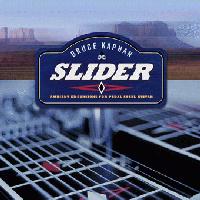 Bruce Kaphan is a multi-instrumentalist and producer who's work has gracedalbums by American Music Club, Mark Eitzel, REM, The Black Crowes, Love andRockets, Chris Isaak, David Byrne and John Lee Hooker, among many others."Slider" is his solo debut for Hearts of Space (www.hos.com), an albumproperly subtitled 'ambient excursions for pedal steel guitar'. Kaphansuccessfully removes the instrument from it's stereotypical Country &Western setting and uses it as sound source for a music more akin to"Bitches Brew" than Buck Owens. Each of the 11 tracks, a few minutes shyof an hour total, are primarily the mellow notes and washes of the steelset in reverberated ambiance. "Clouds" sets the tone with lovely steel andfretless bass interplay. "Country & Eastern" and "Back to the Light" mixin tabla rhythms for an unnaturally natural East meets West feel. "Outpost"is an outlying settlement in one of Brian Eno's ambient worlds. "Homage(Pour La Grande Fromage)" has light beats credited as 'purrcussion' toKaphan's cat Hana. Overall "Slider" is like an audio sedative, not too dulland not too exciting, but certainly relaxing and pretty. Another welcomeaddition to the 'music for sleepy time' pile .
Bruce Kaphan is a multi-instrumentalist and producer who's work has gracedalbums by American Music Club, Mark Eitzel, REM, The Black Crowes, Love andRockets, Chris Isaak, David Byrne and John Lee Hooker, among many others."Slider" is his solo debut for Hearts of Space (www.hos.com), an albumproperly subtitled 'ambient excursions for pedal steel guitar'. Kaphansuccessfully removes the instrument from it's stereotypical Country &Western setting and uses it as sound source for a music more akin to"Bitches Brew" than Buck Owens. Each of the 11 tracks, a few minutes shyof an hour total, are primarily the mellow notes and washes of the steelset in reverberated ambiance. "Clouds" sets the tone with lovely steel andfretless bass interplay. "Country & Eastern" and "Back to the Light" mixin tabla rhythms for an unnaturally natural East meets West feel. "Outpost"is an outlying settlement in one of Brian Eno's ambient worlds. "Homage(Pour La Grande Fromage)" has light beats credited as 'purrcussion' toKaphan's cat Hana. Overall "Slider" is like an audio sedative, not too dulland not too exciting, but certainly relaxing and pretty. Another welcomeaddition to the 'music for sleepy time' pile .samples:
Read More


